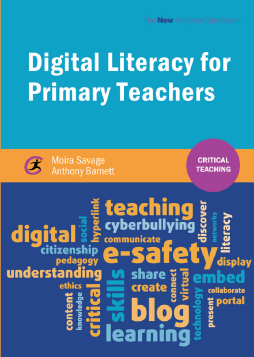
Additional Information
Book Details
Abstract
The educational landscape for primary teachers and learners is increasingly digital and technology rich, making it a challenge for professionals to decide which digital technologies to use, how and when, to bring about the maximum benefit for learning and teaching. This book navigates this complex and evolving arena, providing a structure for teachers to reflect on their own digital literacy, helping them make informed decisions, providing practical ideas on how to develop children’s digital literacy capabilities and offering a range of professional development activities.
The text makes clear links to the new primary curriculum, including the computing programmes of study. It is pedagogy led and illustrated with a range of subject examples. Chapters examine the implications of digital literacy for teaching and learning, creating content, collaboration and communication, digital citizenship, e-safety and digital safeguarding. Critical questions and reflections throughout stimulate readers to engage fully with the text and their professional development.
I particularly like the way the reader is guided to consider and try out different aspects of digital literacy. The book is easy to follow and clearly signposted.
Sandra Eady, University of Stirling
Moira Savageentered the education profession in 1994 as a primary school teacher and became increasingly involved in ICT staff development culminating in joining the University of Worcester in 2003. In 2011 she was awarded a University of Worcester Teaching Fellowship. Her current roles include Senior Lecturer in Initial Teacher Training, Primary ICT and Computing Subject Leader and Institute of Education eLearning Coordinator. She leads a team delivering ICT and Computing education to large cohorts of students on Primary PGCE and BA QTS courses.
Anthony Barnett moved into higher education from teaching in inner London and Kent. Before starting his current post at the University of Worcester he was a science and ICT coordinator. His PhD is in the area of innovative research methodology and his specific interests in ICT include the role of asynchronous discussion within blended learning approaches to teaching. His current teaching role includes undergraduate and postgraduate design & technology, creativity in foundation subject teaching, educational studies modules focusing on issues in ICT and support for postgraduate specialist ICT students and MA students in a range of subjects.
This is a thoughtful and up-to-date text that explores digital literacy across subjects. It will be useful for a range of subjects to refer to.
Karin Boyle, Manchester Metropolitan University
It is a clear and comprehensive exploration of a rapidly changing area of education, valuable both for trainees and those of us who work with them. The authors' expertise comes through very strongly; it is packed with useful material. The case studies are a helpful feature.
Katharine Allott, York St. John University
